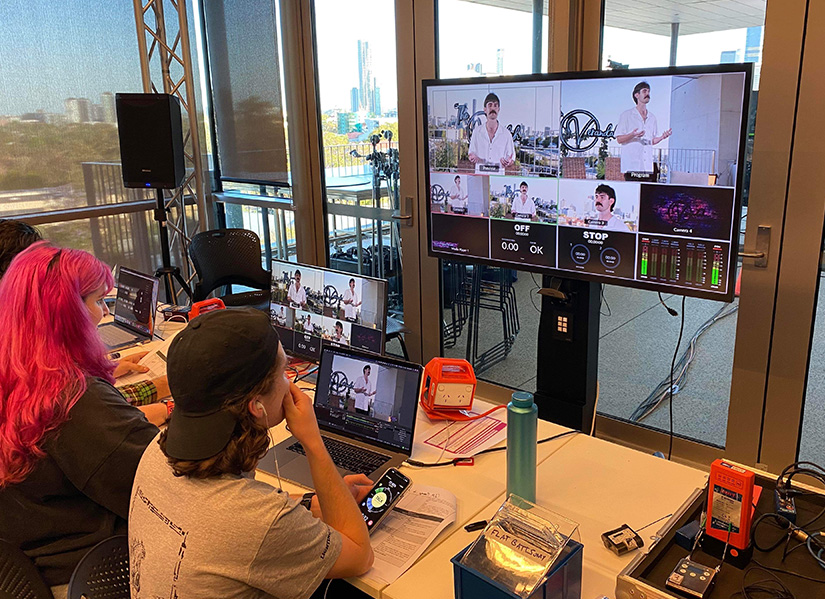
Embracing opportunities as they arise, recent QUT film graduate Ben Cocklin is successfully forging a career as a camera operator, editor and technician in the industry. We chatted to Ben about his weekly schedule and why he believes you must have initiative, drive and proactiveness to make your mark in this industry.
Day in the life of Ben Cocklin
At the moment I'm freelancing across three different jobs whilst balancing my own business and working on a documentary. There's not ever really a fixed routine. If I'm not working, then I’m usually organising my schedule for the rest of the month. To successfully work in the film industry, you have to be flexible and agile. For example, in my current role as camera operator and editor for the Seven Network, I can get called into work at any time of the day.

Once I get the call that a story needs to be covered, I might go pick up the journalist and drive them to our destination. This could be ten minutes or two hours down the road. Once we arrive, we get an idea of how much footage or vision needs to be shot, and if the journalist has to improvise on the spot, then we have to adapt to those requirements. It is important as a camera operator that we are always thinking about how the footage will be edited later to ensure we have enough vision to fill the story. Over time you figure out what the base ingredients are for a story and the process becomes quite formulated.
In terms of figuring out how you can turn something boring such as a set of traffic lights into interesting vision to go on metropolitan news, now that's a different thing. That's something you need to use your ability as a camera operator to paint the picture and interrelate the story to the viewers.
Essential skills
There are a couple of key virtues that are inescapable when working in this industry. You need to have:
- Initiative
- Drive
- Proactiveness
Not everybody will have time to get back to your email, so you have to be persistent in following up and using your initiative to secure a job. I don't think you can survive in this industry without having a really strong work ethic. You will never stop learning and must have the drive to acquire new skills or do your job in different ways. Sometimes you will just have to jump in and adapt to the situation at hand. I would also say don’t be afraid to work across multiple areas in different roles.
I have worked as a technician in the film and television industry, as a camera operator and editor for news broadcast, and as a photographer and filmmaker for the corporate world. Sometimes you don’t know where the next opportunity will come from, so encompassing these key virtues will ensure you build a strong rapport with your employer and clients to secure work in the future.
Tips for film graduates
I think as a young filmmaker trying to emerge into the industry, it is enormously beneficial to have your fingers in a lot of different pies or gain experience in a lot of different areas. Because ultimately when you graduate, if you don't have a fundamental understanding of how different departments operate, especially technical ones, then you will struggle to excel in your role as a producer, technician, screenwriter, or director. When you are on a film set or capturing a story, you are all working towards a common goal, so it is important to have clear communication across departments and to be able to balance competing priorities effectively. So if you are looking for a hands-on job where you won’t get stuck behind a desk, this could be the right industry for you.
